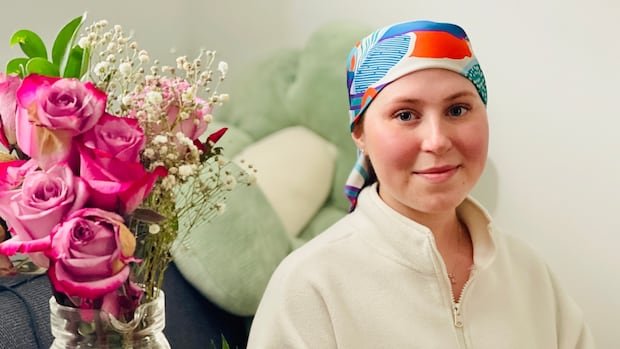In a cozy auditorium at the Princess Margaret Cancer Centre in Toronto, a group of young cancer patients gathers to receive guidance on coping with hair loss during chemotherapy. This workshop, tailored for individuals under 40, is part of a specialized program at the hospital designed for those diagnosed with cancer in their 20s and 30s. While once considered uncommon, recent research from the Lancet indicates a shift in the U.S. as seventeen of the most common cancers diagnosed between ages 25 to 84 are on the rise among millennials and younger Gen-Xers, though the reasons remain unclear.
Laura Burnett, who oversees cancer support programs at the Canadian Cancer Society, notes a similar trend in Canada. The latest data reveals that nearly four percent of cancer cases were projected to be diagnosed in adolescents and young adults aged 15 to 39 in 2023, with thyroid, testicular, and colorectal cancers among the most prevalent types for those aged 15 to 29. Breast, thyroid, and colorectal cancers were common in the 30 to 49 age group.
Dr. Shady Ashamalla from Sunnybrook Hospital in Toronto highlights the increasing frequency of cancer diagnoses among patients in their 20s and 30s. To address the unique needs of these younger patients, hospitals like Princess Margaret have witnessed a growing demand for specialized support programs.
One such initiative is the Adolescent Young Adult Program at Princess Margaret, established in 2015. Led by Dr. Abha Gupta, the program offers personalized assistance to patients under 39, addressing concerns such as fertility preservation, mental health, and financial challenges. Through individual consultations and group activities like yoga and art classes, the program aims to provide a supportive community for young adults facing cancer.
For patients like 25-year-old Kasia Tywonek, diagnosed with leukemia, the program has been invaluable in combating feelings of isolation experienced during treatment. Connecting with peers in similar situations has helped alleviate the sense of being out of sync with her age group’s milestones.
Despite the rising cancer rates in young people, researchers are still investigating the underlying causes behind this trend. Factors such as diet, sedentary lifestyles, and stress are believed to play a role, but further research is needed for conclusive answers. Dr. Ashamalla emphasizes the importance of ongoing research to better understand the factors contributing to the increase in cancer diagnoses among young individuals.
Looking ahead, Dr. Gupta envisions expanding the comprehensive care and support services offered at Princess Margaret to ensure all young cancer patients, regardless of their location or treating hospital, have access to similar resources and assistance.

